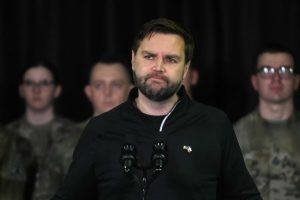Antenna Film Festival Criticized for Screening Alleged Russian Propaganda
Others are reading now
For nearly two years, Ukraine has fought to defend itself against Russia’s full-scale invasion.
The war has taken a massive toll on civilians, soldiers, and entire cities. It has also shaped global conversations about propaganda, media responsibility, and how war is portrayed, according to the Kyiv Independent.
Now, a documentary screening in Australia has sparked outrage within the Ukrainian community, reigniting debates about how Russia’s war should be represented in film.
Ukrainian Australians are preparing to protest the screening of Russians at War at the Antenna Documentary Film Festival in Sydney on Feb. 6.
Also read
The documentary, directed by Canadian-Russian filmmaker Anastasia Trofimova, has been widely criticized for allegedly downplaying Russian war crimes and failing to challenge Kremlin narratives.
Many critics argue that the film lacks a strong counterbalance to Russian propaganda. It does not address well-documented war crimes committed by Russian forces.
It also does not present a clear condemnation of Vladimir Putin’s regime. Trofimova’s past work for Russia Today (RT), a state-funded media outlet known for spreading Kremlin propaganda, has only fueled skepticism.
The Australian Federation of Ukrainian Organizations (AFUO) is leading the protest. The group has been vocal in its opposition to the film, calling it a dangerous piece of Russian propaganda.
“The Ukrainian community has come together with strength and focus to stop this film from being screened in Australia,” the AFUO said in a statement.
“This is not an independent exposé. It is a carefully controlled narrative that serves Russian state interests.”
The controversy surrounding Russians at War is not new. The film was initially selected for screening at major festivals in Venice and Toronto.
However, protests from Ukrainian activists led to its removal from several lineups. The Toronto International Film Festival eventually held a separate screening after its main event, a move that was met with backlash.
The film also received financial backing from the Canada Media Fund, which further fueled criticism.
Despite protests, the Antenna Film Festival has decided to keep the documentary in its lineup. Organizers released a statement defending their choice.
“Russians at War offers a perspective on the conflict that we believe holds value,” the statement said.
“By portraying the experiences and voices of Russian soldiers, the film sheds light on the internal contradictions, disillusionment, and sense of purposelessness within the ranks of the aggressor.”
Festival organizers also noted that they are screening another documentary, Intercepted.
This film follows Ukrainian intelligence officers as they listen to intercepted calls from Russian soldiers. The festival claims this pairing provides a more complete view of the war.
However, the director of Intercepted, Oksana Karpovych, has previously pulled her film from festivals that screened Russians at War, refusing to be associated with it.
Meanwhile, Ukrainian authorities have launched an investigation into Trofimova. Ukraine’s Security Service (SBU) is examining whether she justified or legitimized Russian aggression in her film.
Authorities are also investigating whether she illegally entered Russian-occupied Ukrainian territory while filming.
As the debate over Russians at War continues, Ukrainian activists in Australia remain firm in their stance.
They argue that allowing the film to be shown without proper context only helps spread Russian disinformation.
Their protest is a reminder that the war is not just being fought on the battlefield, but also in the media and public opinion worldwide.








